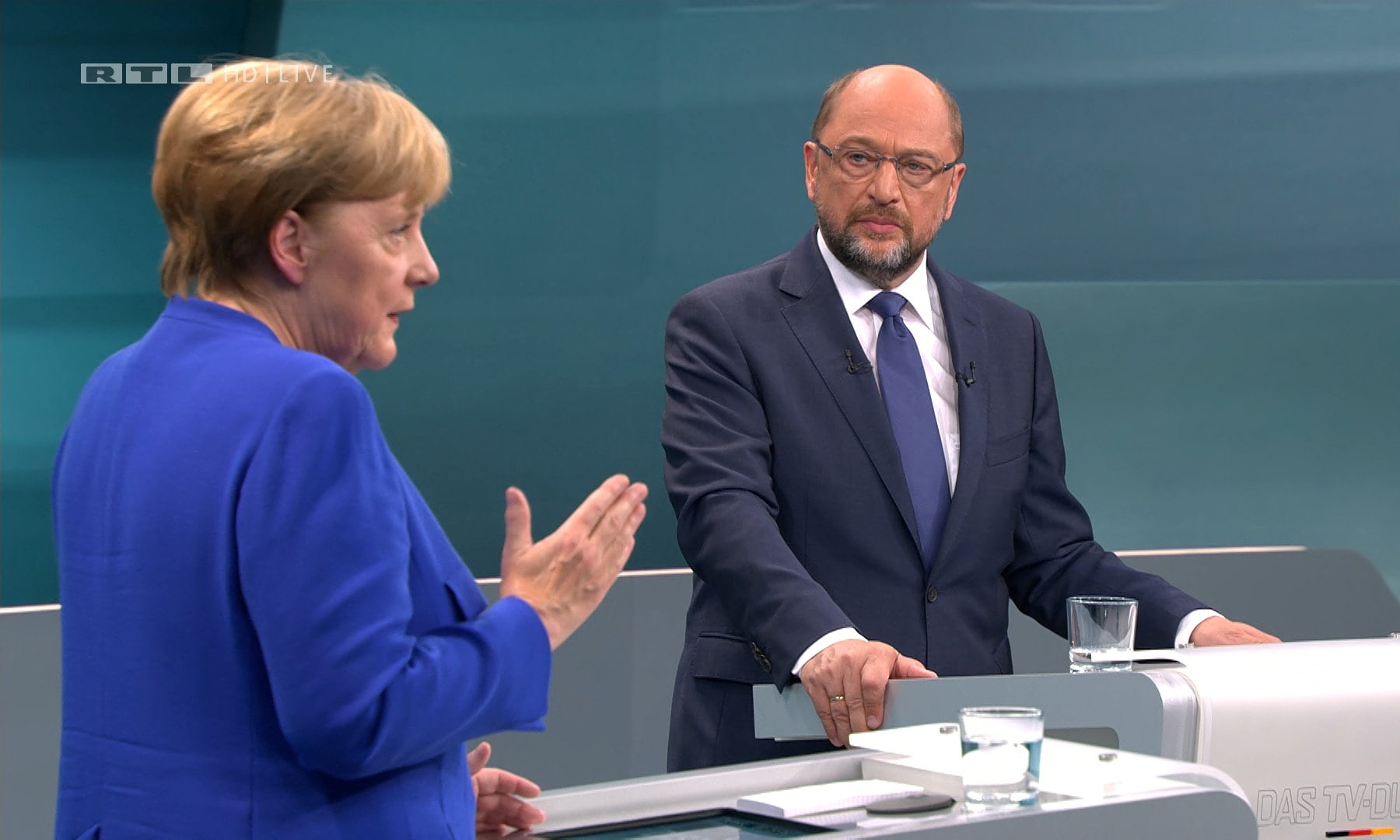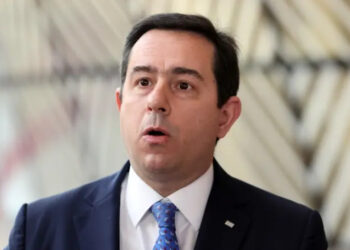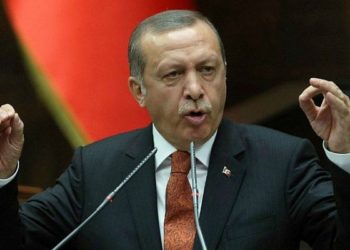German Chancellor Angela Merkel opened the prospect of ending negotiations with Turkey for the E.U. membership, a bid that has been set back by a frozen process and increasingly defined by endless diplomatic disputes between Ankara and E.U. countries.
“Turkey will never become an E.U. member,” Ms. Merkel said during a televised debate with her main rival, Social Democrat Martin Schulz whose unyielding objection to Ankara’s membership pushed the German chancellor to adopt a stronger position.
“The fact is clear that Turkey should not become a member of the E.U.,” Ms. Merkel said in a dramatic shift in her long-standing approach of preserving ties with Turkey.
Last week, it was German Foreign Minister Sigmar Gabriel who used a similar line of argument, claiming that Turkey would never become an E.U. member as long as it is ruled by President Recep Tayyip Erdogan.
Not surprisingly, Ms. Merkel’s remarks prompted a wave of angst-filled reaction from Turkey. President Erdogan’s Spokesman Ibrahim Kalin was quick to condemn the German chancellor, accusing her of using a populist rhetoric to score political points in the upcoming German elections.
Mr. Kalin vented his anger in a series of tweets, linking anti-Turkey rhetoric to the rise of right-wing populism in the E.U.’s leading country.
“Germany and Europe’s attacks on Turkey/Erdogan, by ignoring urgent and fundamental problems, is a reflection of narrowing horizons in Europe,” he said.
Turkey’s E.U. Affairs Minister Omer Celik also expressed sharp criticism of the German chancellor. For him, her remarks were a full-fledged attack on Europe’s founding principles. “They are building a Berlin wall with bricks of populism,” he said.
“Turkey will keep going with its head held high as a European country and a European democracy,” Reuters quoted him as saying.
Turkey’s particular vulnerability against ostracization by Berlin has again found expression in marked recriminations against Ms. Merkel and the German government given its outsized influence in shaping E.U. policy against Ankara.
Ms. Merkel said she would talk to other E.U. leaders to reach a common position in a drive to end accession talks, which have long been deadlocked since Turkey convulsed by political upheaval and crushing of opposition by Mr. Erdogan’s government after a failed coup attempt last year.
German chancellor’s comments represent a high-water mark of brewing discontent with growing authoritarianism in Turkey. Adding to Germany’s exasperation over Ankara’s refusal to allow lawmakers to visit its troops in Turkey on several occasions over the past months was the arrest of dozens of German citizens in Turkey.
Just last week, two German nationals were apprehended at Antalya airport, prompting Ms. Merkel to say that Germany may rethink ties with Turkey.
Germany Foreign Ministry said Berlin believes that German citizens were imprisoned for political reasons. The arrest of human rights activist Peter Steudtner in July appeared to be a turning point for Germany. Ms. Merkel said Turkey would not be included in E.U. negotiations to upgrade customs union, a trade bloc that Ankara joined in 1995.
What drove Ms. Merkel to embrace a harsher stance against Turkey was his rival’s unwavering opposition to a place for Ankara in the E.U. During the debate, Mr. Schulz made his position clear again and said he would propose to the European Council to end membership talks with Turkey once he becomes a chancellor.
He vowed to fight for that goal even without being sure of other E.U. countries’ views regarding the proposal.
Before her ascent to Germany’s top political office, Ms. Merkel had been against Turkey’s E.U. bid. But when she became a chancellor in 2005, she pledged to honor the E.U. process started before her.
Though reluctant she might be, Ms. Merkel still carried out negotiations with Ankara. She, however, portrayed the talks as open-ended, studiously shied away from offering any guarantee for membership to Turkey at the end of the talks.





















